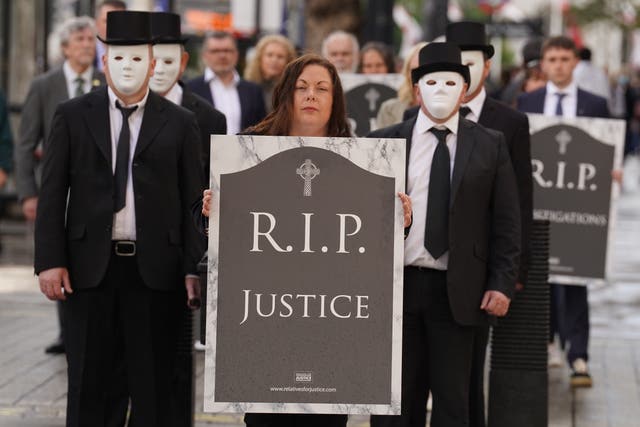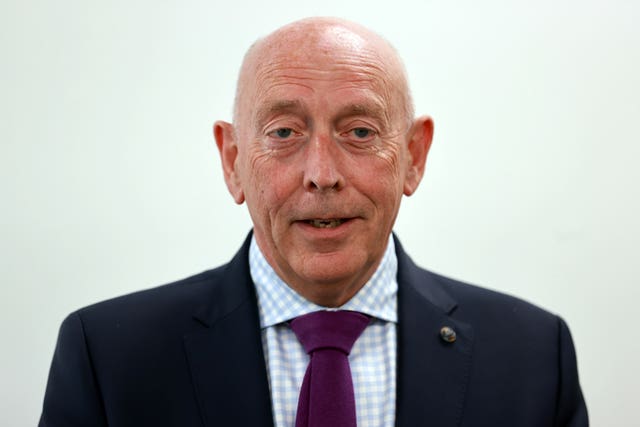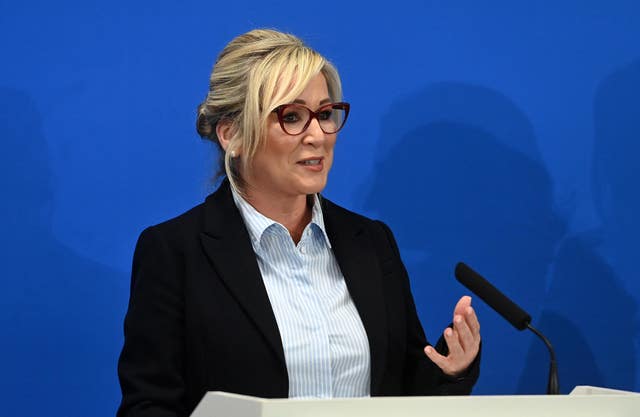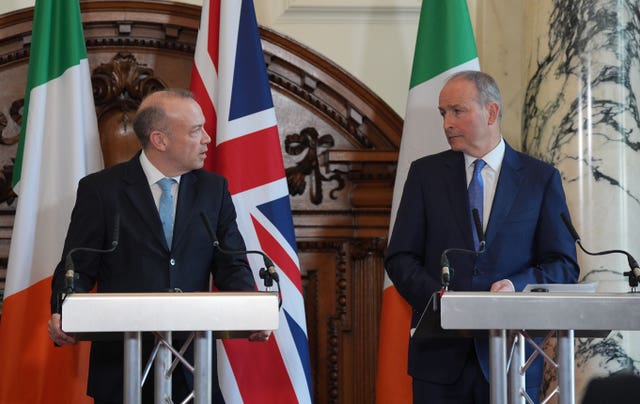
The head of a new truth recovery body which will take on responsibility for hundreds of unresolved Troubles deaths this week has insisted the commission can succeed despite fierce opposition to its establishment.
Sir Declan Morgan, chief commissioner at the Independent Commission for Reconciliation and Information Recovery (ICRIR), said the organisation would now provide a “single, dedicated mechanism” for investigations into deaths and cases of harm.
Commissioner for Investigations at the ICRIR Peter Sheridan said that the body had police powers and he “would not hesitate to use them to get to the facts”.

The Government’s Legacy Act received royal assent last year despite widespread opposition from political parties, victims’ organisations in Northern Ireland and the Irish government.
From May 1, all civil litigation and inquests into Troubles deaths will be stopped.
Prosecutions that are currently ongoing will continue to conclusion.
From this date, bereaved families, victims and certain public authorities can request the ICRIR carry out an investigation.
The ICRIR will open dedicated telephone, email and postal routes for victims to contact it about investigating their case.
Sir Declan, a former lord chief justice of Northern Ireland, said: “This week sees the end of the current approach to legacy cases, with responsibilities split across a number of different organisations.
“The commission will now provide a single, dedicated mechanism for investigations into deaths and serious harm during the Troubles/conflict.
“We are committed to complying with the (European Convention on Human Rights) and to delivering for all, no matter their background, and will use our powers to investigate thoroughly so that we set out the unvarnished facts.”
He added: “I understand that these changes are not welcomed by some, but like when I set up the legacy inquests process against opposition, I am convinced that we can make this a success.
“We will work to gain trust by what we can deliver and we will keep reaching out to all those across our community for their input to improve the way that the commission works.”

Mr Sheridan, a former senior police officer with the RUC and PSNI, will head up investigations at the ICRIR.
He said: “I take very seriously the responsibility that we all have at the commission to deliver for the victims and survivors of the Troubles/conflict, and their families.
“We cannot bring back the fathers, mothers, and daughters and sons lost during the Troubles/conflict. But we can investigate thoroughly, without fear or favour, and set out the facts of what happened for all across our community.
“We have strong powers, including police powers, to obtain whatever information is necessary for our investigations, and I will not hesitate to use them to get to the facts.
“We need to follow a trauma and resiliency-informed model so that the victims, survivors and families who have asked us to investigate are sensitively and properly involved at every step of our investigations.”
However, there is no sign of political opposition to the new legacy arrangements easing, with Northern Ireland’s First Minister Michelle O’Neill telling the Stormont Assembly that the Act which created the ICRIR should be “binned”.

Ms O’Neill added: “What the British Government are doing in terms of shutting down very firmly the doors on access to justice, access to the courts, is totally not acceptable.”
Meanwhile, Northern Ireland Secretary Chris Heaton-Harris has said the relationship between the UK and Ireland is “strong enough to deal with” a dispute over new legacy laws.
Ireland has launched an interstate legal case against the new laws.

Speaking at the British-Irish Intergovernmental Conference, Mr Heaton-Harris said: “This new body starts work on the first of May – on Wednesday – and is completely independent, has a huge budget and has unprecedented disclosure by the UK State about what went on during the times of the Troubles to try and get some information to those families that wish to have it.
“So, yeah, we’re bound to have politics and various political debates between us.
“But I’d like to think our relationship is strong enough to deal with all of those issues.”
Tanaiste Micheal Martin said his Government’s approach is about a “desire to do right by the victims”.
On Monday, final hearings were taking place in a series of legacy inquests in Northern Ireland as part of an intensive court schedule ahead of Wednesday’s legislative guillotine.
In addition, Northern Ireland’s Police Ombudsman Marie Anderson has said she plans to conclude 95 Troubles-related cases “in the next year”.


Comments: Our rules
We want our comments to be a lively and valuable part of our community - a place where readers can debate and engage with the most important local issues. The ability to comment on our stories is a privilege, not a right, however, and that privilege may be withdrawn if it is abused or misused.
Please report any comments that break our rules.
Read the rules here